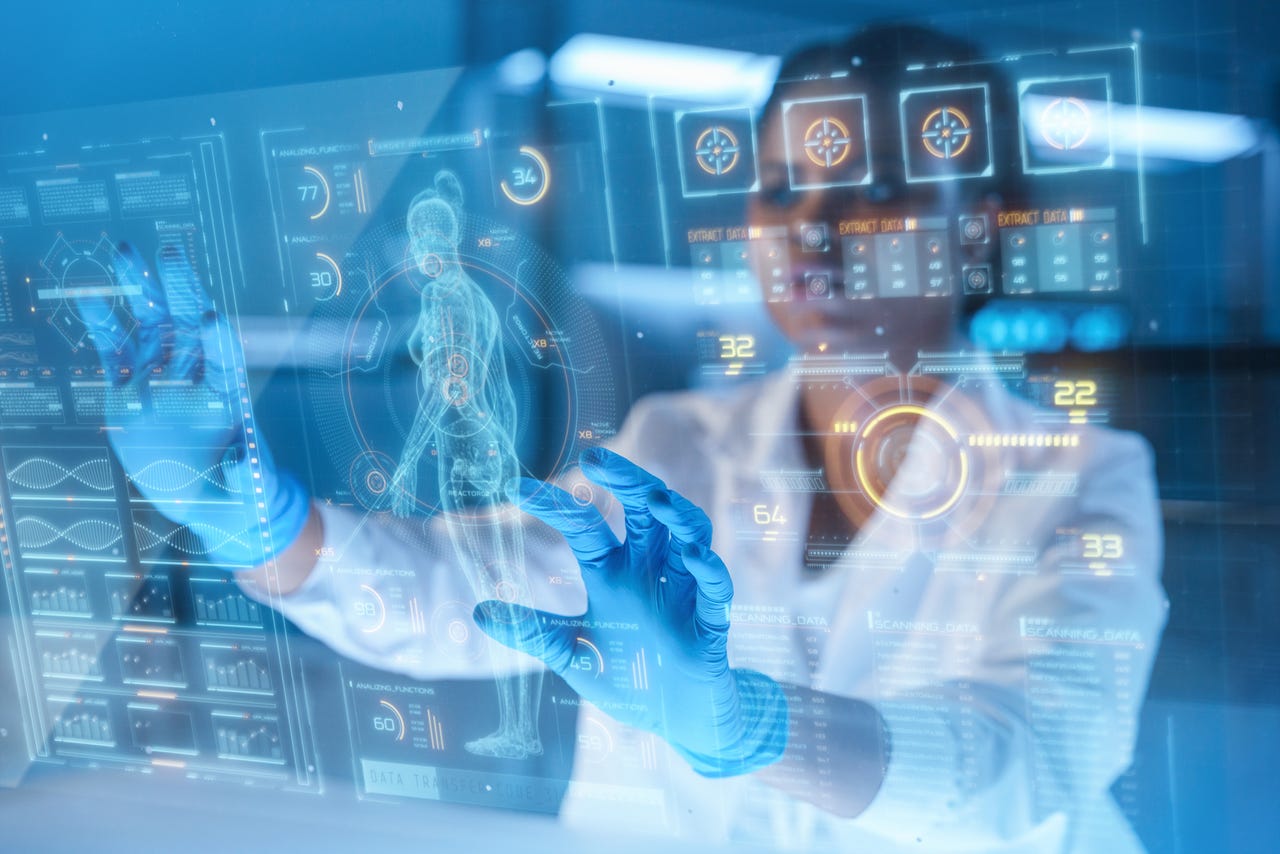































 Ignatiev/Getty Images
Ignatiev/Getty Images The digitization of health care has been a long time coming, with the practice of healing tied, for obvious reasons, to older, carefully vetted ways of doing things.
But increasingly, artificial intelligence in various forms is creeping into the clinic. Applications include in predictive analytics, smart prostheses, mobile diagnostics, and brain implants. Plus, with the emergence of large language models (LLMs) like ChatGPT, we explore whether that technology can assist in health care today.
While much of the work is in the form of pilot studies, it's clear AI will play a major role in shaping how health care is delivered in decades to come.
Some of the world's most effective organizations are putting the latest AI innovations to work in smart -- and sometimes startling -- new ways. We put the spotlight on a diverse range of organizations across different parts of the economy to see how they are automating, streamlining, and transforming the ways things are done.
Read now"Deep learning AI has finally gotten through this process of the technical infrastructure being in place, and the data being available to train it, after years of really hard work," said Jeremy Howard, co-founder of the AI research and education startup Fast.ai, and founder of the first company to apply deep learning to medicine, Enlitic.
After all that effort, "You should expect to see a hell of a lot more of it in the coming years," meaning, applied AI in medicine, said Howard in an interview with .
Right now, the state of the art in applying AI to medicine consists of small-scale studies that employ a variety of very well-established machine learning forms of AI. Those programs have proven their worth over decades. They are finally being taken into the clinic and being applied to a variety of data, from real-time brain activity readings to electronic health records.
It's still a ways off for the newer kinds of machine learning AI, the stuff such as ChatGPT from OpenAI. That technology gets all the attention but it is too new to be reliable in the sensitive realm of the clinic.
Already, the use of machine learning has been transformative for the participating patients. Gert-Jan Oskam, a 40-year-old bicycle accident victim, was given a novel brain-computer interface that let him stand and walk again. He told the prestigious journal Nature the device has been "life-changing."
"Last week, there was something that needed to be painted and there was nobody to help me," said Oskam. "So, I took the walker and the paint, and I did it myself while I was standing."
Among the most dramatic early wins for AI in health care are the successes, still small in number, with prostheses of various kinds to restore functionality to individuals with serious injuries.
Step aside, Elon Musk: the fabled "brain-computer interface," or BCI that Musk says he'll put into clinical trials has already been achieved by the Stanford team in a stunning example of using carefully developed machine learning forms of AI.
The fabled "brain-computer interface" touted by Elon Musk is already a reality. Researchers in Switzerland made a "digital bridge" between the brain's motion regions and "lumbosacral" region of the spine that translates intention into stimulation of the muscles to make legs move naturally.
Ecole Polytechnique F Etiquetas calientes:
Inteligencia Artificial
innovación
Etiquetas calientes:
Inteligencia Artificial
innovación